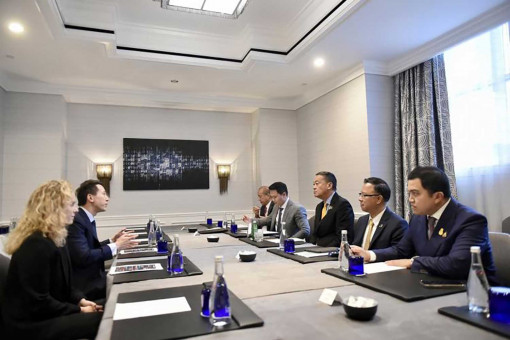PUBLISHED : 17 Nov 2023 at 04:08

TikTok has expressed interest in setting up a training centre in Thailand for Thai users to promote Thai food and soft power as tax incentives will be offered to the company, Prime Minister Srettha Thavisin said.
The PM made the remarks after talks with TikTok executives on the sidelines of the Asia-Pacific Economic Cooperation (Apec) summit in San Francisco.
Mr Srettha said Thailand has about 43 million TikTok users.
“We have to find ways to help each other — helping them operate a good business and helping Thais, such as by promoting Otop [One Tambon, One Product] products.
“I told them that Thailand does not have only Bangkok, Chiang Mai, or Phuket. There are also several other provinces which need to promote their products and services, soft power, and food.
“Several business operators uploaded cooking video clips onto TikTok with lots of viewers. I asked TikTok to open a training centre in Thailand to give advice on how to make optimal use of the social media platform.
“The Board of Investment has also offered tax incentives, and TikTok is interested,” Mr Srettha said.
Developed and owned by the Chinese technology company ByteDance, TikTok is a popular video-sharing social media app.
According to figures released by TikTok, there are over 325 million active monthly users in Southeast Asia, while 15 million small businesses use the platform each month in the region.
Government spokesman Chai Wacharonke said the prime minister invited TikTok to help Thailand promote its soft power in provinces which have their own Otop goods and services, apart from major provinces. TikTok executives appreciated that there are numerous TikTok users in Thailand, Mr Chai said, adding the company also plans to diversify into the field of education.
Mr Srettha said he also talked with executives of Booking.com, an online booking platform where hotels and other types of accommodation make their rooms available to travellers around the world.
He said the number of people visiting the website has increased seven-fold since the visa-free policy for Chinese and Kazakh tourists was announced.
He also said the executives would contact the Tourism Authority of Thailand’s governor to discuss ways to benefit both sides.

